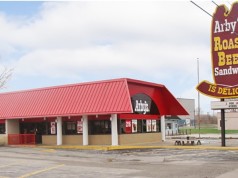Chairwoman Stabenow Announces Funding for The Greening of Detroit to Help Restore Vacant Land, Conserve the Detroit and Rouge River Watersheds
WASHINGTON, D.C. – November 7, 2013 – (RealEstateRama) — U.S. Senator Debbie Stabenow, Chairwoman of the U.S. Senate Committee on Agriculture, Nutrition and Forestry, today announced two U.S. Forest Service grants for The Greening of Detroit to help restore vacant land and conserve the Detroit and Rouge River Watersheds. The Greening of Detroit, founded in 1989, is a nonprofit environmental organization committed to repurposing land in ways that provide environmental, economic and social benefits to Detroit residents – from tree plantings, green infrastructure to urban agriculture and green workforce development.
Senator Stabenow in Social Media |
Senator Stabenow in National News |
The City of Detroit has approximately 20 square miles of vacant property, an area equal to the size of Manhattan. The $650,000 in federal funding is part of the Great Lakes Restoration Initiative, a collaborative effort among multiple federal agencies to rehabilitate and restore the Great Lakes.
“The Greening of Detroit is committed to revitalizing neighborhoods across the city by transforming vacant land into greener spaces,” said Stabenow. “This partnership with the U.S. Forest Service will plant thousands of trees to restore abandoned spaces, create youth jobs, and conserve the Detroit and Rouge River Watersheds for years to come.”
“Clean water comes from abundant tree cover,” said Tony Ferguson, director, U.S. Forest Service Northeastern Area. “These grants put people to work restoring shoreland ecosystems, barren streets and polluted industrial sites. Grassroots efforts create sustainable communities and ensure the health of the Great Lakes. I’m excited to see these grants go to so many new partners.”
The City of Detroit sits in both the Detroit and Rouge River watersheds which are identified by the Environmental Protection Agency as Areas of Concern. The Greening of Detroit will receive $400,000 to partner with the City of Detroit to reduce storm water runoff and remediate soil contamination by planting 4,000-5,000 trees on vacant land parcels that drain into river channels.
“Detroiters are really going to feel the difference that this investment will make. The trees we plant will not only make neighborhoods more beautiful, they’ll make them healthier as well by cleaning the air and removing pollutants from the soil. In some neighborhoods these newly planted trees will also help reduce flooding, keeping basements drier and streets safer. Trees play an amazing role in providing multiple benefits to the communities we serve, and we’re grateful for the opportunity to add so many to Detroit’s urban forest,” said Rebecca Salminen Witt, President of The Greening of Detroit. The organization has planted nearly 82,000 trees since its inception in 1989.
The Greening of Detroit will also receive $250,000 to work with the Cities of Detroit, Hamtramck, and Highland Park to implement an Emerald Ash Borer restoration project. The Emerald Ash Borer, an invasive beetle first discovered in Michigan in 2002, is highly destructive to ash trees. This collaborative partnership will plant 1,295 trees in neighborhoods throughout these three communities to help capture contaminants. The project will also recruit and train 1,684 community volunteers to assist with tree planting efforts and maintain trees for three years using the Greening’s youth employment program, The Green Corps. The Greening employs approximately 200 Detroit high school students every summer to water and care for the newly planted trees. These Green Corps youth employees not only earn a paycheck, they learn about environmental stewardship and giving back to their own neighborhoods in a tangible way.
As Chairwoman of the Senate Agriculture, Nutrition and Forestry Committee, Senator Stabenow has oversight of the U.S. Forest Service.
The Greening of Detroit: The Greening of Detroit inspires sustainable growth of a healthy urban community through trees, green spaces, food, education, training and job opportunities.




